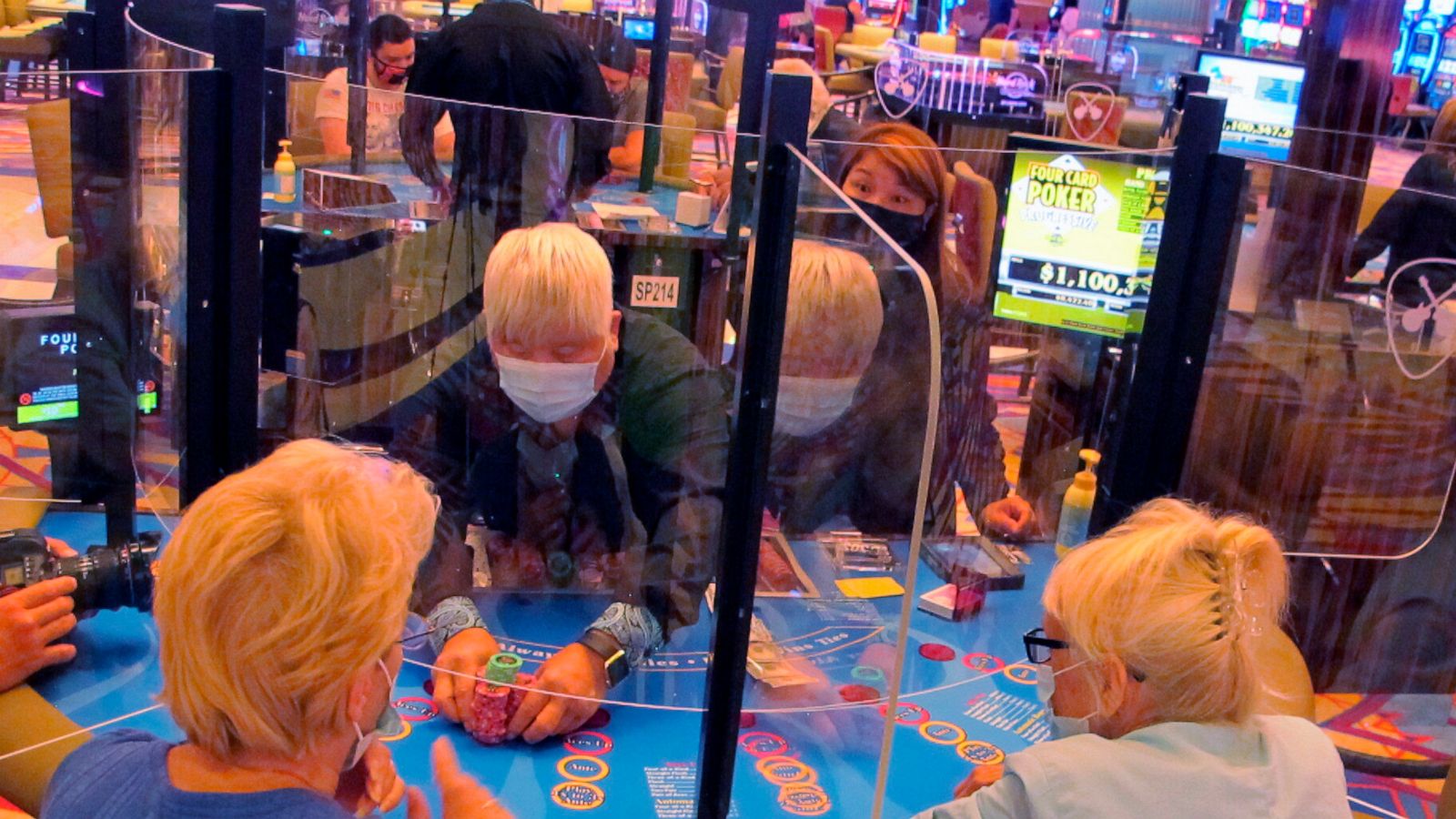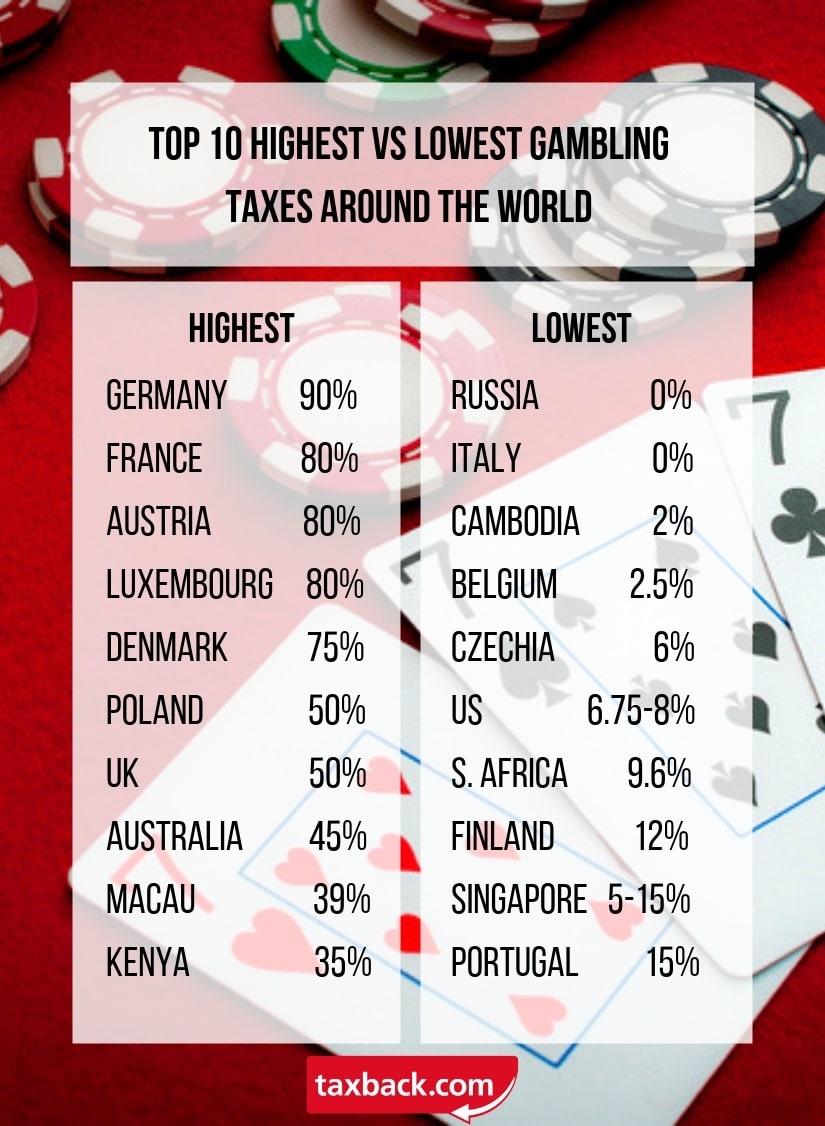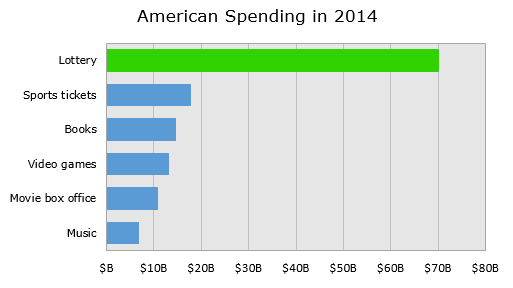Gambling Tax Rates Us
U.S. Gambling Tax Recovery
The IRS requires casinos and other gambling establishments to withhold 30% of the gambling winnings of Canadian visitors to the U.S. However, if you also have U.S. Gambling losses during the year, it is possible to file a 1040NR return, deduct those losses from your winnings, and receive a refund of the tax withheld. For many of us, gambling means buying the occasional lottery ticket on the way home from work, but the Internal Revenue Service says that casual gambling also includes raffles, casino games, poker, sports betting—and, yes, even fantasy football. When you win, your winnings are taxable income, subject to its own tax rules. Under the US Tax Code, all income for US citizens is taxable, whether earned in the US, overseas or on the Internet. Section 61(a) defines gross income as “all income from whatever source derived,” including gambling, unless otherwise provided. United States, 292 F.2d 630, 631-632 (5th Cir. A payment to a foreign individual or entity is subject to a 30% withholding tax if the payment is fixed or determinable annual or periodical income (FDAP) from sources within the United States. The Treasury Regulations broadly define FDAP, which courts and the IRS have held to include gambling winnings. Foreign Nationals, Tax on Gambling Winnings and US Tax Treaties. The USA signed an income tax treaty with various countries. Several of these income tax treaties have a provision for the gambling income. There are select countries which have a tax treaty with the United States (US) that will reduce the 30% withholding tax on gambling proceeds.
Author: Brad Howland
First Posted: Jan. 2, 2007
Canadians who gamble in the United States may find that 30% of their winnings are withheld to cover U.S. non-resident's tax. Under certain circumstances, this tax can recovered by filing a U.S. tax return.
The IRS requires casinos and other gambling establishments to withhold 30% of the gambling winnings of Canadian visitors to the U.S. However, if you also have U.S. gambling losses during the year, it is possible to file a 1040NR return, deduct those losses from your winnings, and receive a refund of the tax withheld. You must have received 1042-S forms (or W-2G forms) from the gambling establishments showing income and tax withheld, and you must be a U.S. non-resident, for this procedure to work.
You must also have records to substantiate your losses. The IRS provides the following guideline on their website: 'It is important to keep an accurate diary or similar record of your gambling winnings and losses. To deduct your losses, you must be able to provide receipts, tickets, statements or other records that show the amount of both your winnings and losses.'
Your diary should record the date, location, and type of your gambling activities, as well as amounts won or lost. These records do not have to be submitted with the tax return, but must be available if requested by the IRS.
If you have winnings from blackjack, baccarat, craps, roulette, or big-6 wheel, and the casino gave you Form 1042-S showing that tax was withheld, you don't require gambling losses to claim a full refund of the tax.
The tax refund is obtained by following two basic steps:
1. Obtain an ITIN Number
If you do not have a U.S. Individual Taxpayer Identification Number (ITIN) you need to apply for one by submitting Form W-7 to the IRS along with your tax return. The application process requires you to submit certain documents as proof of identity and foreign status:
IRS has streamlined the number of documents the agency will accept as proof of identity to obtain an ITIN. There are now 13 acceptable documents.
An original, or a certified or notarized copy, of an UNEXPIRED passport is the only document that is accepted for both identity and foreign status. If you do not have a passport, you must provide a combination of current documents that contain expiration dates - we accept docs issued within 12 months of the application if no expiration date is normally available. The documents must also show your name and photograph, and support your claim of foreign status.
IRS will accept certified or notarized copies of a combination (two or more) of the following documents, in lieu of a passport:
- National identification card (must show photo, name, current address, date of birth, and expiration date)
- U.S. driver's license
- Civil birth certificate
- Foreign driver's license
- U.S. state identification card
- Foreign voter's registration card
- U.S. military identification card
- Foreign military identification card
- Visa
- U.S. Citizenship and Immigration Services (USCIS) photo identification
- Medical records (dependents - under 14 years old - only)
- School records (dependents and/or students - under 25 years old - only)
(Source)
Naturally, you probably don't want to send original copies of your documents to the IRS. Although it possible to send certified or notarized copies, there is a catch: copies must be certified by the 'issuing agency or official custodian of the original record,' or 'notarized by a U.S. notary public legally authorized within his or her local jurisdiction to certify that the document is a true copy of the original.' For Canadian residents who don't want to travel to the United States just to find a notary, U.S. notaries public are available at U.S. embassies and consulates in Canada.
In our practice we have used the notary services available at the Vancouver Consulate General, with good success and a reasonable turn-around time. However, it may be more convenient for you to drop into the nearest Canadian passport office and have them make a certified copy of your passport. At the time of this writing, it is free and seems to take about a week to get ready.
Alternatively, if you don't want to go through the somewhat onerous process of applying for an ITIN by yourself, you can use an official IRS 'Certifying Acceptance Agent.' An Acceptance Agent is authorized by IRS to assist individuals in obtaining ITINs, and will probably charge a fee for the service provided. The IRS posts a list of Acceptance Agents on it's website. The list is updated quarterly, and many are located in Canada.
2. Prepare the 1040NR Return
ITIN applications on Form W-7 are required to be submitted to the IRS with the tax return as an accompanying attachment, along with the necessary original, certified or notarized documents (as above). Your package is sent to the Austin, Texas mailing address at:
Internal Revenue Service
Austin Service Center
ITIN Operation, P.O. Box 149342
Austin, TX 78714-9342
In general you can expect it to take at least three-four months to process your return and refund. It is acceptable to file 1040NR returns and claim refunds for the previous three years. We provide Form W-7 and 1040NR preparation services for $300, plus 12% HST and shipping.
Related Websites
IRS Tax Topic 419
Gambling Income and Expenses

The tax rates for online gambling are literally and figuratively all over the map as jurisdictions across the United States move to approve, regulate – and profit from – mobile/online wagering.
As 2020 begins, there are only three states – Delaware, Pennsylvania, and New Jersey – with regulated online betting on slots, poker, and table games. Nine states across the country, including PA and NJ, have online sports betting.
Here, we break down the various state tax rates for online gambling and discuss the implications of the vast range that exists across markets.
Online casino rates all over the map
Tax rates for online casino operations run from as low as 15% in New Jersey, the top revenue generator, to the 62.5% found in Delaware. That number comes from totaling the state’s cut, referred to as “revenue sharing” in DE, plus a 12.5% state vendor fee.
Pennsylvania took a different approach, varying tax rates depending on the vertical. PA’s rates are 54% for online slots, but 16% for online poker and online table games.
| State | Online Tax Rates |
|---|---|
| Delaware | 62.5%* (50%+12.5%**) |
| New Jersey | 15% |
| Pennsylvania | 54% (slots); 16% (poker & table games) |

*These rates apply after the initial $3.75 million in revenue all goes to the state.
**50% goes to revenue sharing with the state and an additional 12.5% to the state vendor.
Online sportsbook rates run the gamut
Online sportsbook rates vary even more widely across the nine states with mobile sports wagering operational. Those states are:
- Nevada
- New Jersey
- Pennsylvania
- Rhode Island
- West Virginia
- Oregon
- Iowa
- Indiana
- New Hampshire
The lowest tax rate among the online sportsbook jurisdictions is 6.75%, the rate employed in Nevada and Iowa.
The highest, Rhode Island, comes in at a staggering 83% when adding the 51% revenue sharing amount and the 32% cut for the state’s vendor.
Delaware comes in second-highest with its 62.5% tax rate set for online casino.
| States with Online Sportsbooks | Tax Rate |
|---|---|
| Nevada | 6.75% |
| Iowa | 6.75% |
| Indiana | 9.5% |
| West Virginia | 10% |
| New Jersey | 13% (casino-based); 14.25% (racetrack-based) |
| Pennsylvania | 36% |
| New Hampshire | 51% (revenue share) |
| Delaware | 62.5%* |
| Rhode Island | 83%** |
| Oregon | Not disclosed |
*Includes 50% revenue share with the state plus 12.5% to the state vendor
**Includes 51% revenue share with the state plus 32% to the state vendor
Pitfalls of high taxes on online gambling
Nevada was the lone state with full-fledged sports betting prior to the 2018 overturning of PASPA that opened the way for other states to join in. Their reasonable 6.75% tax rate across the board has stood the test of time.
While states like New Jersey, Iowa, and Indiana have followed suit with operator-friendly tax rates, others have clearly opted for a different strategy – to their detriment.
The American Gaming Association (AGA) believes setting tax rates too high to foster competition in the market makes it difficult to compete against illegal gambling operations. The AGA tracks tax rates across the country in the organization’s annual State of the State’s report.
“To compete with the illegal market, states must implement sensible policies – including tax rates and licensing fees – that enable a seamless shift to safer alternatives for consumers,” said Casey Clark, the AGA’s senior vice president, strategic communications.
Market saturation is changing the gambling business
There is a longstanding tendency by governments to treat gambling taxation as an elastic cash cow, shifting program funding from a state’s voting constituents to outsider companies.
That may have worked when gambling was relatively new, but with the increasing competition in the Northeast and Mid-Atlantic gambling markets, high taxation in certain states has caused issues.
The high online tax rates in Pennsylvania come up when discussing the slowed rate of gambling market growth in the state. The huge 54% slot rate likely in large part explains why there are still just five online slot operators in a state as large and populous as Pennsylvania, with its nearly 13 million residents.
The other factor holding back expansion is likely PA’s decision to require computer servers to be housed within the borders of the Keystone State. This regulation stems from an early 2019 DOJ Wire Act opinion that has been taken at face value by the Pennsylvania Gaming Control Board, even as other states attribute little weight to the interpretation.
With online casino growth left wanting, PA’s online sportsbook market has proven more appealing for operators, despite the hefty 36% tax rate on revenue.
Online sportsbook expansion is ‘hot’
There are currently eight online sportsbooks in PA with more expected to launch in the near future.
Pennsylvania’s online sports betting market has several factors working to their benefit.
Joe Bertolone, the executive director of the International Center for Gaming at the University of Nevada Las Vegas, said online sportsbook growth, even in high tax jurisdictions such as PA, will continue to drive expansion and innovation simply because that niche is considered “hot.”
Despite the high tax rate, the PA market is a “must” for operators due to the size of the state’s population of close to 13 million, added Bertolone.
“You’ve got to be there,” he said of PA.

Small market states feel negative effects of high tax rates
Smaller markets like Delaware and Rhode Island don’t carry the same draw for potential operators. The impact of high tax rates is magnified in these states, which can be further constrained by local law.
While “The First State” was indeed the first in the country to offer a form of legal online casino, revenues from online gambling have underwhelmed to date. In addition to a small population of around 1 million, Delaware is constrained by a law that allows for just three online casino operators, one for each land-based casino.
All three brands operate on one single platform run by 888 Holdings. Competition in the DE market, therefore, is lacking.
The first state (besides Nevada) to launch legal retail sports betting, Delaware is still limited to land-based wagering at their three casinos plus state lottery retailers which can accept parlays of three teams or more.
The state lottery runs Rhode Island‘s only legal online sportsbook, and it has limited features and offers no bonus incentives.
Both states have traditionally treated gambling operations like a goose with limitless gold eggs. But they may soon be forced to change with the times.
Competition necessitates adjustments
After being out ahead of the curve when it comes to offering legal gambling, Delaware seems to be falling behind in adjusting to the post-PASPA era of online wagering.
Between its three casino sportsbooks and lottery retailers, DE brought in $132.5 million in handle for the year 2019, $19.5 million being revenue.
A look at year-on-year figures from 2018 to 2019 in the popular betting month of November, Delaware saw a significant 46% drop in handle while revenue was stagnant at $1.3 million.
With competition in surrounding states increasing, gambling revenues in Rhode Island have also disappointed of late. The Providence Journal reported in November that the state would claim less than $10 million in revenue for sports betting for 2019. That’s less than half of the $22.7 million projected in profit.
Gambling Tax Rates Usps
The state also now expects only $105 million in handle via the state’s new mobile app, just a fraction of the $595 million assumed in prior projections.
Will high online tax rates survive?
Bertolone has cautioned that expansion is dynamic, and markets will continue to feel the “ripple” as saturation is reached.
Gambling Tax Rates By State
And yet, just like Delaware, Rhode Island’s tax rate remains in the stratosphere. PA’s rates likewise leave something to be desired, especially for potential online casino operators.
Gambling Tax Rates In Us
Whether states will make changes to online gambling tax rates perceived by many to be unsustainable or stunting growth of the market remains to be seen.